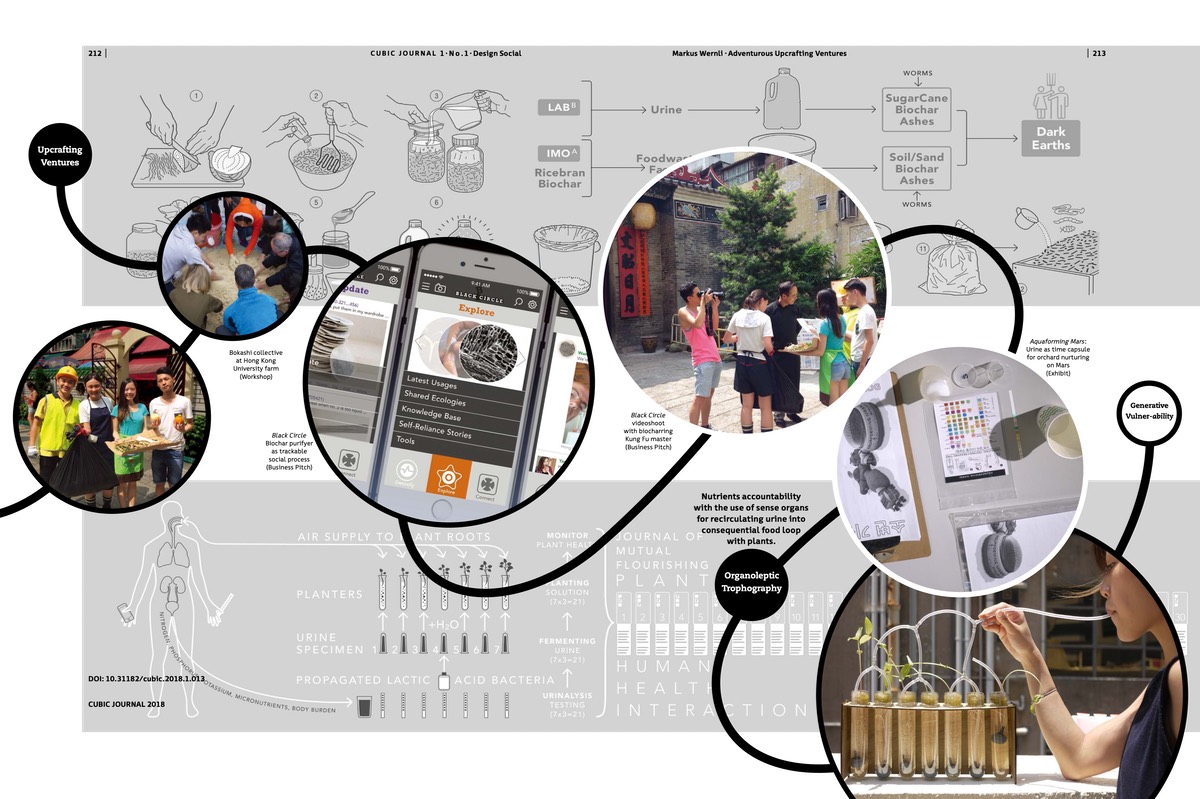Downloads
DOI:
10.31182/cubic.2018.1.013Keywords:
Urine Fermentation, Generative Vulnerability, Radical Homemaking, Risky Collaborations, EIDAbstract
Since 2015, the Research Institute of Organic Treasures (R.I.O.T.) has combined fermentation practices and social experimentation in Hong Kong to give biological byproducts from human and urban metabolisms a regenerative purpose. Here putrescible wastes emitted from our kitchens, toilets, and bodies are considered our most foundational design material that contributes to a “world of eaters” (DuPuis 2015). In this applied design work, the concept of upcycling is socio-materially extended into shared forms of upskilling, and therefore referred to as upcrafting. In an effort to combine practical outcomes with long-term welfare creation, R.I.O.T. brings together laypersons, natural scientists, and artists, into open-ended explorations of alternative knowledge and change making, or what Melanie DuPuis calls “extended peer communities” (ibid. 155).
How to Cite
Published
Issue
Section
License
Copyright (c) 2018 Markus Wernli

This work is licensed under a Creative Commons Attribution 4.0 International License.
References
DuPuis, Melanie. Dangerous Digestion. Oakland: University of California Press, 2015. DOI: https://doi.org/10.1525/california/9780520275478.001.0001
Liboiron, Max. "On Solidarity & Molecules (#MakeMuskratRight) ." Journal for Discard Studies (2016).
Stevenson, Herb. "Coaching at the Point of Contact: A Gestalt Approach." Gestalt Review 20, no. 3 (2016): 260-78. DOI: https://doi.org/10.5325/gestaltreview.20.3.0260

